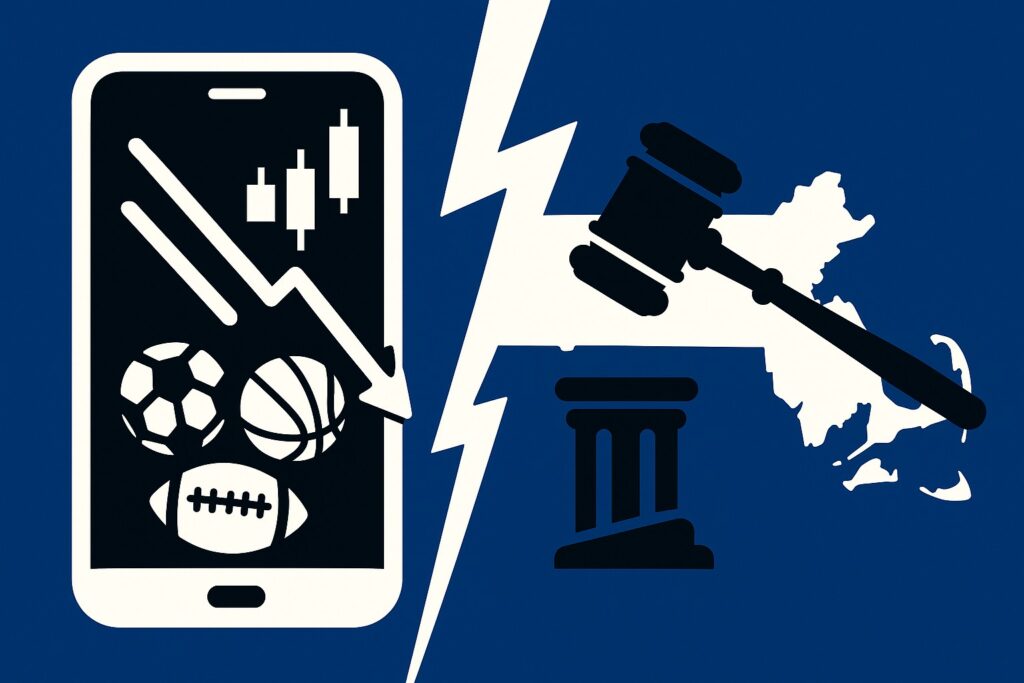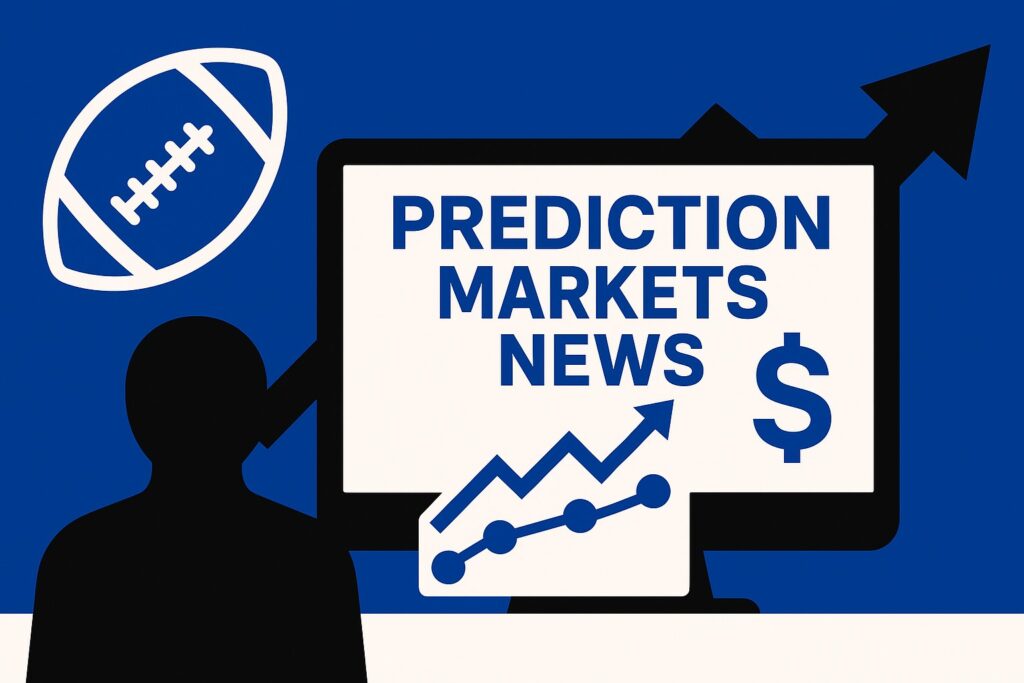As Maryland gears up for its fight against Kalshi, officials are looking at a recent ruling from West Virginia will help them stop online prediction markets from operating within state lines.
Maryland filed a ruling issued by the United States Court of Appeals for the Fourth Circuit. While it applied to an abortion case in West Virginia, Maryland reps believe that it directly applies to the lawsuit brought forth by Kalshi after the Maryland Lottery and Gaming Control Commission sent the firm a cease-and-desist letter in April.
The rationale: Federal law does not automatically preempt state law.
While such a ruling could provide optimism for prediction market opponents, it does not necessarily signify a winning recipe to oust Kalshi.
How West Virginia abortion case ruling applies to Maryland
In GenBioPro, Inc. v. Raynes, the Fourth Circuit considered whether “certain federal standards” regulating the abortion drug mifepristone superseded West Virginia state law.
The court ultimately ruled that there was no federal preemption.
Essentially, the court determined that there was no crystal-clear federal law regarding the issue. It noted that the Food and Drug Administration Amendments Act of 2007 contains “a maze of provisions” that “falls well short of expressing a clear intention to displace the states’ historic and sovereign right to protect the health and safety of their citizens.”
In a post on LinkedIn, gaming attorney Phillip Reale summarized that the Fourth Circuit found “no express intent” in FDA rules to preempt states’ rights to regulate matters of health and safety.
“Similarly,” Reale wrote, “the CFTC regulations certainly do not express a clear and manifest intent to preempt a state’s sovereign authority to regulate gaming, which was expressly granted in Murphy v. NCAA (2018).
“In short, the [Fourth Circuit] clearly upheld the long-standing precedent that Congress does not abrogate state sovereign immunity unless it clearly articulates an intent to do so. This rings especially true in areas of traditional state regulation – such as gaming.”
Fourth Circuit ruling ‘should bring a smile’ to gaming regulators
Reale added that Kalshi has a suit pending in Maryland’s Federal District Court, Kalshiex LLC v. Martin et al, that “sits firmly” within the Fourth Circuit. And the district judge, Adam Abelson, could likely rely on the GenBioPro ruling when drafting an opinion.
Bottom line, Reale concluded, the Fourth Circuit ruling “should bring a smile to the faces of gaming regulators everywhere.”
Attorney Daniel Wallach also took to LinkedIn, saying that the West Virginia ruling further bolsters Maryland’s case against Kalshi, which already included “strong supplemental briefing” from the Attorney General’s office and a tribal amici brief, “which hit all the right notes.”
Andrew Kim, a gaming and appellate lawyer at Goodwin Law, told The Event Horizon that Abelson could certainly cite the Fourth Circuit ruling if he believes the Commodity Exchange Act wasn’t intended to preempt state gaming laws.
That said, Kim added: “By no means is the GenBioPro case a silver bullet for Maryland.”
Why West Virginia ruling may not impact Kalshi case in Maryland
Kim emphasized that the West Virginia ruling was for an abortion case, which he noted “is a radically different issue.”
While gambling does “elicit strong objections among people of the utmost good faith,” as the Fourth Circuit opinion read regarding abortion, certain aspects of the ruling don’t apply to the Maryland case.
As Kim described, the GenBioPro decision revolved around “upstream-downstream regulation,” where states regulate upstream (whether to allow abortions at all) while the federal government regulates downstream (if abortions are permitted, what medicine should be used).
In Maryland, Kim continued, there are two competing streams of regulation surrounding sports prediction markets. Kalshi could also cite GenBioPro and note that preemption exists where it’s the “natural implication” of the statute, which leaves only the Commodity Futures Trading Commission (CFTC) is the regulatory body.
“To me,” Kim said, “GenBioPro isn’t so persuasive that it swings the case one way or another. I doubt it’ll change his [Abelson’s] mind.
“But notwithstanding the recent Fourth Circuit decision, Judge Abelson is probably thinking hard about the presumption against preemption, and the fact that (1) the CEA’s exclusive jurisdiction is somewhat ambiguous as to its scope, and (2) the Special Rule doesn’t really make clear which regulator is in charge.”
Ruling on Kalshi vs. Maryland could come soon
Abelson could deliver his ruling on the Maryland-Kalshi case in the near future, a decision that could certainly determine the future of betting on prediction markets.
Kalshi has already won preliminary injunctions in Nevada and New Jersey, two other states the platform sued in response to cease-and-desist orders.
As his company faced growing pushback at the state level, Kalshi CEO Tarek Mansour emphasized in April that state law “doesn’t apply” to the operator.
Speaking at an event in San Francisco at the time, Mansour said that Kalshi is “not necessarily very concerned” about states going after his company, which he continues to say is licensed and regulated at the federal level by the CFTC.
“If the CFTC tells us to stop, we will absolutely stop,” Mansour said. “And if they don’t, then we won’t.”




